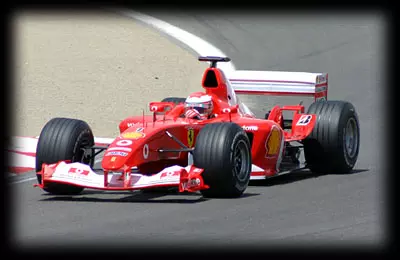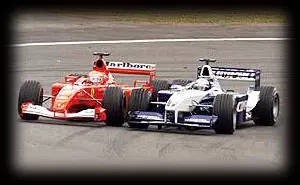The most popular car racing category in the world gives a show that no one wants to miss, my question is Why?

In Europe, car racing was dominated by the Germans until the Second World War. The AutoUnión and Mercedes Benz won everything, which is why it was said that only silver cars were successful. Formula 1 began as such in 1950, with the mastery of the famous Alfetta (Alfa Romeo 158), champions in 1950 and 1951 with Farina and Fangio respectively.
In 1954 Mercedes obtained his first championship with Fangio as a driver. Over the years, other companies became involved with the category. The English accumulate the maximum number of titles (Williams, McLarenand Lotusas referents), pursued by the Italians of [Ferrari].
Technical evolution throughout history saw a parade of innovations, among which stand out: radios for communication between pilots, engineers and team directors, who carefully plan the strategy of pit stops; spoilers, to improve adherence to the road; the ground effect, subsequently banned by regulations; the development of tyre compounds that allowed more control in the curves; the era of turbocharged engines that generated more than 1,000 HP, also banned by regulation; telemetry; and finally the electronic management of pilot complement, banned in 1993 and then reinserted, because it was almost impossible to identify those who used it illegally.
Computers have a certain decision-making capacity, which sometimes overshadow certain qualities of pilots, as is the case with the start. The pilot function during the start is limited to “release a button” located on the steering wheel.

But now I want to focus on what competition is today. Ferrari's mastery is absolute, having both the best car and the best equipment. It is very unusual to see a mistake in the pit of the Italian team that, it is worth clarifying, of Italian has less and less. The director of the team is the French Jean Todt, the head of engineering Ross Brawn is English, and Schumacher German. The category no longer offers an attractive spectacle because of the competition.
Although by tradition, and almost only because of that, it is still a reference for sports motorsport, it is already clear that, today, there is no real challenge. Nobody thinks there could be any surprise in the leaderboard, and this goes beyond regulation, what chance to win can teams that have two-thirds or sometimes half the leader's budget? Even in times of McLaren's total dominance, Senna and Prost delighted us with their driving classes.
So I question the following, Max Mosley and Bernie Ecclestone's business will be very profitable... but he's not sportsmanly rich. Model category in that sense is NASCAR, where 30 of 43 cars have good chances to win races, and at least 15 of them are serious candidates for the title. Let's compare these numbers with F1 numbers. Of a total of 20 cars, hopefully 6 have a chance of winning wins (2 of them are Ferrari), and only one has a real chance of being a champion. With these facts, I think it is very clear what I mean when I talk about the 'sport poverty' of today's F1.
© Adrián Blanco 2004 — Prohibited the total or partial reproduction of text and/or images without explicit written consent of the author. —